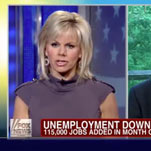NEXT Monday night, Jack Bauer will wrap up the fifth season of "24" by trying to bring down the president of the United States. A Richard Nixon look-alike named Charles Logan, the president has been secretly working with terrorists to secure a steady flow of oil to this country and doing a lot of bad things in the process. Bauer, a government agent played by Kiefer Sutherland, seems like the last man who can stop him.
Multimedia
It will be one of the biggest nights of the television year for the young, well-off viewers the networks cherish. "24" may be the 24th-highest-rated show this season, but its high-income fan base � including insiders in Hollywood and at the White House � make it a more valuable franchise for Fox than its ranking suggests.
That means the show's viewers are also the same people who tend to own a TiVo, so many of them won't really sit down at 8 p.m., 7 central, on Monday to watch the two-hour finale. They will wait until 8:30 and then fast-forward through the ads, or they will do something else entirely on Monday night and watch the finale a day or two later.
No Top 40 program has a higher percentage of its audience watching on delay, according to numbers from Nielsen Media Research. Only "Lost" and "Survivor" come close.
It's a perfectly pleasant way to watch a show, and it is easy to imagine that television will always be this good as long as you have a TiVo. But the odds that we have entered a post- advertising age are about as good as the odds that Jack Bauer gets killed next week.
MANY of the people plotting to solve the TiVo problem are in New York this week for a series of meetings called the upfronts. At the upfronts, each major network gets a day to impress advertisers and critics by showing clips from next season's lineup and then serving a lot of free drinks. Today is CBS's turn, with the clips running at Carnegie Hall and the drinks being poured at Tavern on the Green.
What makes this year's meetings more interesting than usual is a fight over how television ratings should count TiVo viewers and how much advertisers should pay for them. (To be technical about it, the proper term is "DVR viewers," as in digital video recorders, but I think TiVo has risen to Kleenex status.)
Advertisers are still smarting from their timidity back in the 1980's, when VCR's started catching on and Nielsen decided that its ratings would include people who taped programs rather than watching them live. The truth, of course, is that many recorded shows never end up being watched.
"We've lived with that decision for 20 years, and we're still living with it," said Lyle Schwartz, the research director at a company called Mediaedge:cia, which negotiates with networks on behalf of advertisers. "Advertisers don't want to pay for people who don't watch their shows."
With the stakes much larger this time around, Nielsen has started releasing three different ratings for every show. The first is the old-fashioned version, which counts the live audience (as well as the VCR audience). The second includes people who watch the show on their DVR within 24 hours, while the third adds everybody who watches within a week of a show's broadcast. Mr. Schwartz and his firm are pushing Nielsen to go even further and calculate separate ratings for a show and for its commercials.
Network executives, as you may guess, have done their best to pooh-pooh the impact of TiVo. The head of sales at ABC said a few months back that he would not even negotiate with advertisers who insisted on using only Nielsen's live ratings. The networks also released a study suggesting that DVR owners remember as much about commercials as people without the devices, which is clearly ludicrous.
Privately, though, the executives understand that TiVo is rapidly undercutting the economics of television. Since "24" made its debut in 2001, my wife and I have missed just one episode, yet I don't think we have seen a commercial in three years. We are free riders, enjoying the product without paying the bills.
By 2008, more than one in four households will own a DVR, up from one in eight now, Forrester Research predicts. So television clearly cannot continue moving in the direction it has been moving. "For TiVo to matter," Thomas S. Rogers, the chief executive of TiVo, said, "there has to be great television out there, and there has to be the funding for it."
Television these days seems to be about where the Internet was five years ago. People are getting an amazing variety of entertainment essentially free, while the companies making the product try to figure out a new business model.
On the Web, you now must pay for full access to Weather.com, ESPN and this newspaper, among other sites, and you also have to sift through ever more insidious advertising. Television is starting to go the same way.
More shows are likely to move to a model like HBO's, in which you pay to be entertained but avoid watching commercials. Advertisers will also figure out ways to reach you even if you do own a TiVo. Product placement will become more popular, as it already is on reality shows, and banners and scrolls will appear on your screen even more often.
When you put it all together, you start to realize that television may not be changing as much as it sometimes seems to be. TiVo is not going to kill advertising, and it won't kill the networks. If anything, it may help them, by increasing the audience for top shows like "24" at the expense of shows that just happen to be on when you turn on your set.
And once they have gotten you to watch the show, the TiVo-proof ads will surely follow. The golden age of commercial-free prime time isn't going to last long.












